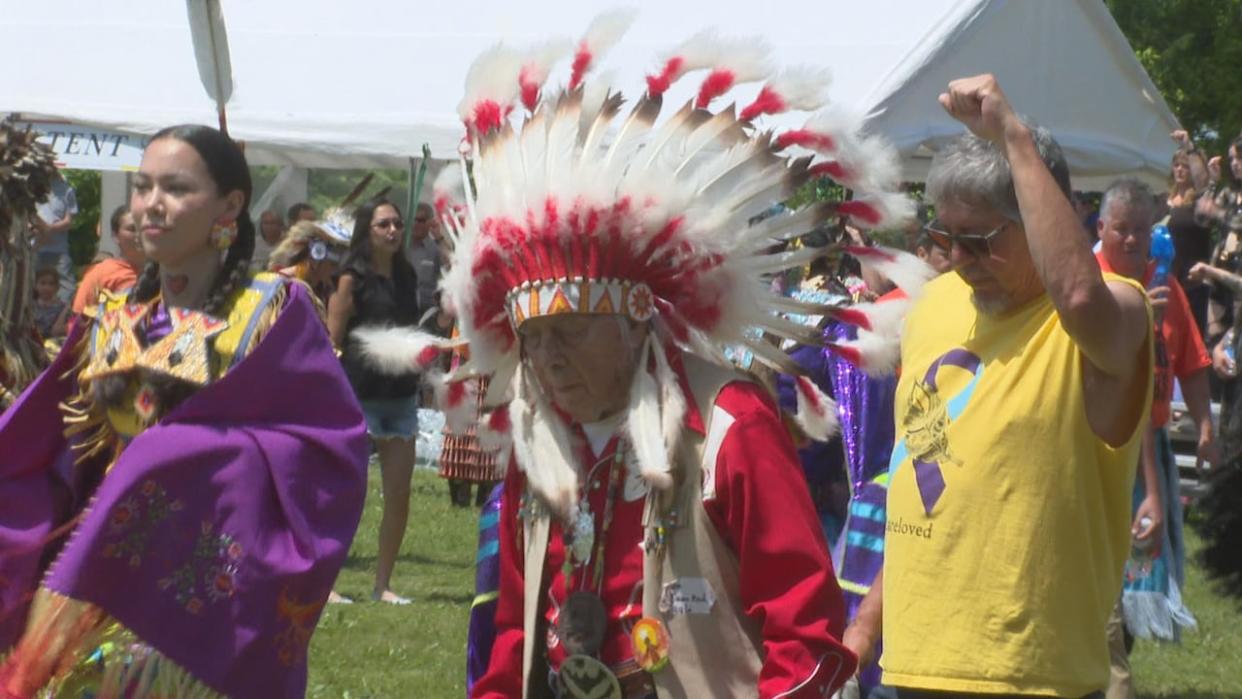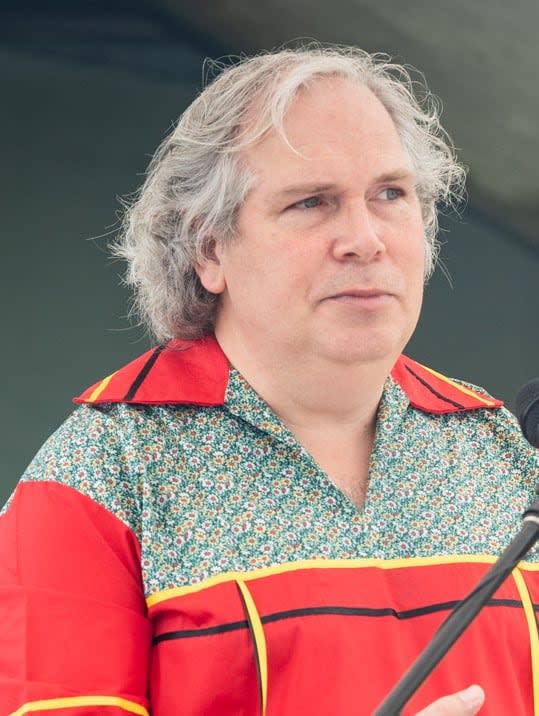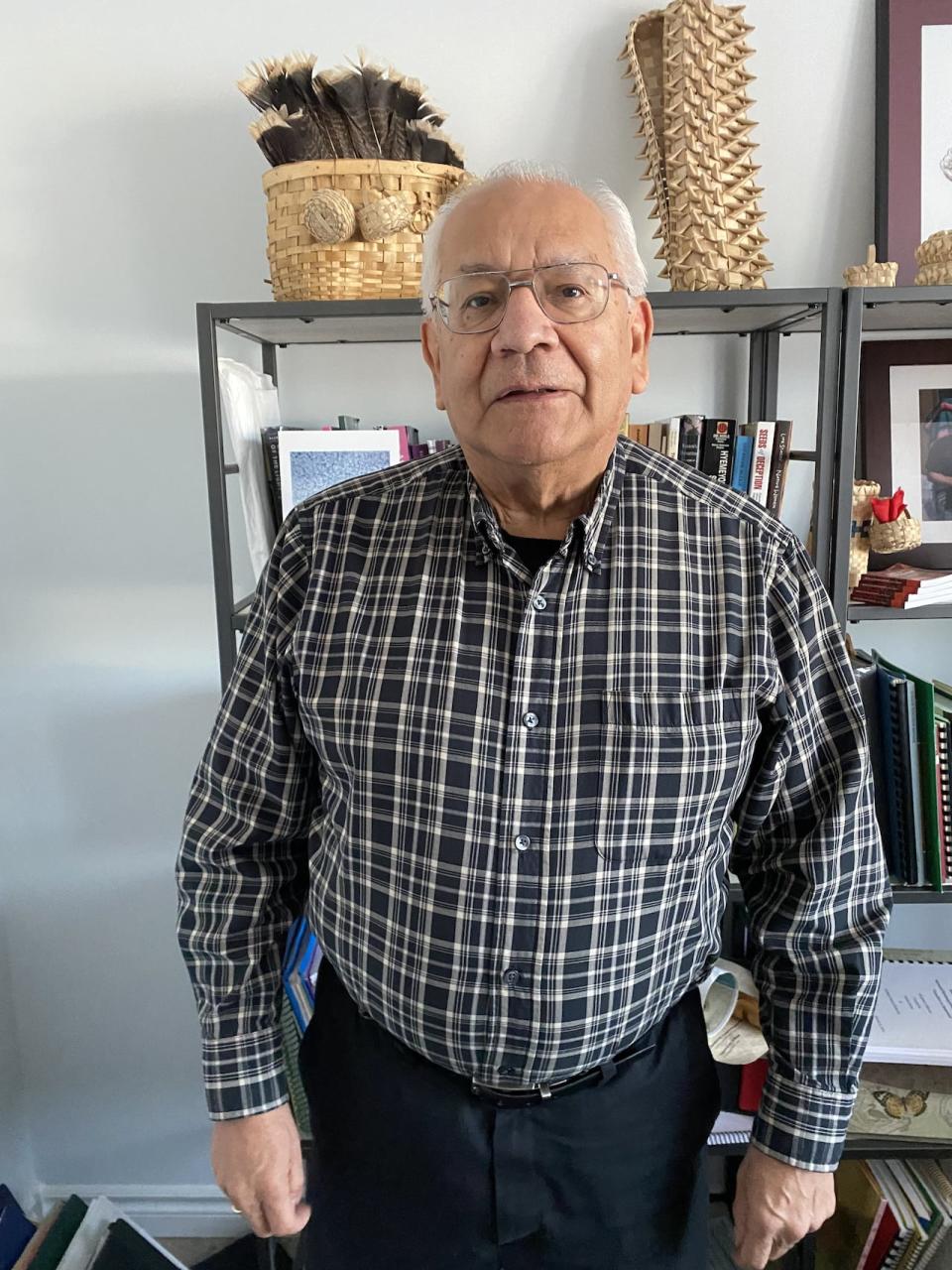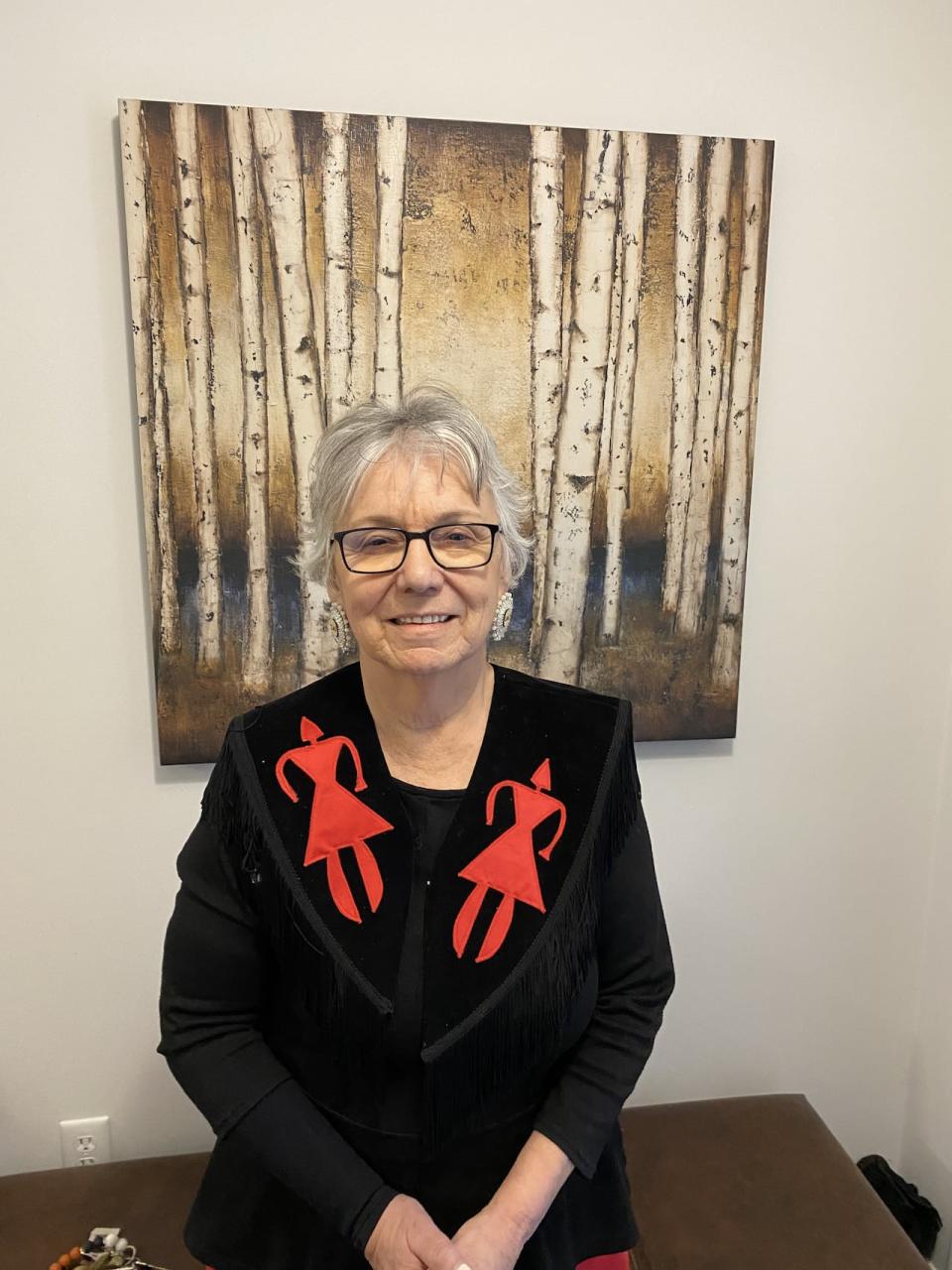Saint John plans first powwow for 2024 as part of reconciliation efforts

Saint John, or Menaquesk in the Wolastoqey language, has never hosted a powwow, but 2024 might see that change with the city hoping to become part of New Brunswick's annual powwow trail.
Todd Ross, Indigenous adviser at the University of New Brunswick in Saint John, said bringing the cultural event to the city, which includes food, dancing and singing, is a way to recognize the Indigenous history of the area.
"This has a long history of being a gathering place," he said. "But also as a harvesting place — both for harvesting the sea, harvesting the river, but also the plants that grow in this area. So it's got a long history of being ... a very important Indigenous, Wabanaki place."
While it's still in the planning stage, the announcement was made at a recent Saint John council meeting as a part of a presentation about the city's progress on truth and reconciliation, and hosting a powwow is part of those ongoing efforts.

Todd Ross, Indigenous adviser for UNB, says a powwow in Saint John would recognize the historic importance of the area to First Nations. (Submitted by Todd Ross)
Ross says Saint John may be the oldest incorporated city, but that is still a relatively short time when you consider how long the Wabanaki people have been living on the land.
"Until the last few hundred years, the dominant language here was Wabanaki, the population here was all Wabanaki," he said. "Even though there's still a large Indigenous community here, you don't recognize that it's a large community because this vibrant city has grown up around it."
According to 2021 census, more than 1,800 individuals in Saint John identify as Indigenous.
"It's close to 12 per cent of the Indigenous population in New Brunswick that lives in the larger area around Menaquesk, which is a significant number of people," Ross said.
A powwow in Saint John would give Indigenous people in the area access to a major cultural event. The closest powwows have been more than 100 kilometres away, in Fredericton.
"So having the powwow come to this area is a recognition of the historic importance of the area [and] also a recognition of the large contemporary community that lives here now," Ross said.
Recognizing 'true history' of Saint John
David and Imelda Perley work in Indigenous education and have a long connection with UNB.
David was the director of the university's Mi'kmaq-Wolastoqey Centre until his retirement. Imelda was elder-in-residence at UNB and works to revive the Wolastoqey language.
David focuses on Wolastoqey history in the province. He holds the title Ihkatuwin'Ciw Wolokehkitimok, which means "one who guides and protects holistic learning," on Tobique First Nation.

David Perley, a Wolastoqi scholar, says Menaquesk community members were forced to move upriver when the Loyalists arrived. (Submitted by Imelda Perley )
They say a powwow in Saint John would be meaningful.
"It'll be another step towards reconcili-action," Imelda said.
"The word 'reconciliation' in English is a noun. In our language, it's a verb and so when we translate it, [it means] walking the talk and moving towards truth and not to hide the truth."
To David, the truth is the true history of Saint John and the "history of Wolastoqiyik before Saint John became a city."
"To me, having that powwow is recognition that there were Wolastoqiyik there, settled in that area, and that settlement was then labelled by my ancestors as Menaquesk."
Menaquesk, Imelda says, translates to "where the sea takes the land."

Elder Imelda Perley, who works to revitalize the Maliseet and Wolastoqey languages, says a powwow in Saint John would be a step towards reconciliation. (Submitted by Imelda Perley )
Imelda says what is now Saint John was once considered a "gathering space," with trading houses and people from across what is now New Brunswick and Nova Scotia meeting to exchange goods.
Imelda recalls stories from her elders about people "trading with baskets and pelts."
David says relations between Indigenous communities of the area and Loyalist settlers were fraught with conflict.
"When the Loyalists came into the area, they took control of the land. And so that caused some bitterness among Wolastoqey and the Mi'kmaq," he said.
David says Menaquesk community members were driven out and forced to move upriver because of this "encroachment."
"Most of them [settled] in Sitansisk or Oromocto or Kingsclear. This is where the government, the colonial governments of the day, established reservations."
Indigenous involvement key component
The City of Saint John says it is engaging with First Nations' leadership to plan the powwow. CBC News contacted the city for more details. In a statement, the city said the event is still in the planning stage and there is no information to share at this time.
The whole purpose of powwow is celebrating the community and bringing the community together. - Todd Ross, Indigenous adviser, UNBSJ
Ross, who is a part of non-profit Indigenous group called the Health Advisory Circle, said the city has approached the group for early and informal consultations about hosting a powwow. The response, Ross said, was positive.
"I think that the intent was to reach out to community members to get an informal feel of whether this was something that they should be pursuing or not," he said.
"A lot of the people who are on the Health Advisory Circle — Indigenous community members — often have to go out of the city for powwows. So the thought of one coming here, I think, people generally received it quite well."
Ross says Indigenous involvement is a key component.
"Having that indigenous involvement in the actual event brings it forward as an Indigenous event, as opposed to something that's being organized by the city for Indigenous people."

